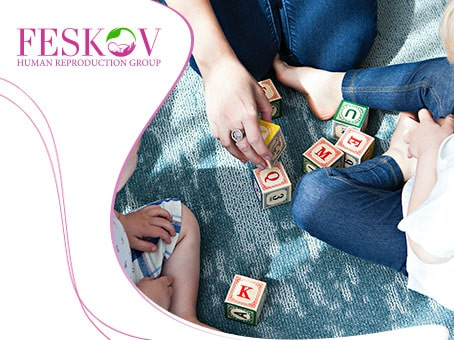Surrogacy for most people is very exciting but also a nerve-wracking experience. People get anxious about the entire Surrogacy Process, starting with their health and ending with some paperwork. But what bothers people especially is something that seems simple at first is communication. Here, it is not only about relationships with your partner or your friends. You’re getting to know a completely new person who is going to carry your baby. And to make your journey maybe a little bit easier, we collected some tips that might help you with that.

How to Talk to Intended Parents Guide
Intended parents are usually the people who stress out the most about the situation. They want to find a perfect surrogate. On the one hand, intended parents want to make everything right and have a true connection with their surrogate. Still, on the other, it is important to know your own and their boundaries, not to overstep them and not destroy your relationship with each other.
Where to start?
- You are contacting your surrogate. Often people are confused with the first step of communication. Where to chat and how to chat are their main questions. And as with every other person you have a relationship with talk. Simple as that. Both sides should find a comfortable way for them to talk, whether it is online via Skype, Zoom, or Whatsapp calls, with video or without, or in person. Of course, it is essential to meet your surrogate in real life, at least sometimes to check on her and see how she’s doing, just like with a friend. You can even meet her family and children. Here it is important to keep that friendly relationship.
- How often should we be in contact during the process? Another very popular question. We believe that having a “checkup call” or meeting one to two times per week is enough for both of you. This way, you can stay focused on your work and personal life so that you can be the surrogate, and you will still know about everything that’s happening to her. Of course, if there will be emergency needs, the surrogate will contact you, and so can you do the same thing.
- Do’s and don’ts. Things you should or should not be talking about. Surrogate should become your friend. Even after the baby is born and officially, you don’t have to be in contact anymore. Families make a strong bond together, and they keep in touch. A friendly relationship is what makes the outcome positive. So ask about their family, their interests, it shouldn’t only be about their pregnancy. Once the child is born, you will want to have the surrogate as a friend so that later on, you can meet the child with her, if that’s what you choose. However, it is better not to overpressure the surrogate. Keep it positive, don’t put too much pressure on such questions about how she feels, whether her diet is right or healthy enough. Surrogates are women who know what they’re doing, so no need to worry about this.
The journey you’re about to go through has to be filled with happy, positive moments so that your future children are born in a comfortable environment. If you stress out too much, it shows, and there’s no need to worry as long as both sides know their job.

How to Talk to Surrogate Mothers Guide
As for surrogates, the journey might look kind of the same, with your difficulties. However, keeping a friendly relationship with intended parents is also something surrogates want to achieve. And here are useful tips:
- Contact with intended father and mother. Here the same implies to the surrogates. The best way to find out how to communicate with prospective parents is to find out yourself. Together you can find a solution that is convenient for both sides, and that will be achievable for you and your intended parents.
- How often should we be in contact? One to two times per week is more than enough in the first few months of the pregnancy. However, as the pregnancy time goes up, the more you’ll have to see each other to know how you’re doing and check on your health. And of course, be in contact if anything goes wrong or you need additional help from the intended parents.
- Do’s and don’ts. Keep the personal space. The same as for the parents, trying to find out more about them generally like people and not just as “service customers” is very important to build trust. Also, avoid sensitive topics and controversial ones, as it is also very important to save your distance and keep an amicable relationship. Especially try to build a friendly relationship with the future mother as it is a connection you can save for the rest of your life.
Try to look out for each other’s needs and be patient with each other. Surrogate or intended parents relationship is not just about the service, but about a real relationship that you’re building. Here the work from both sides is very important.
